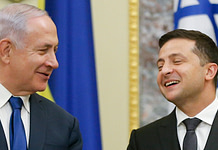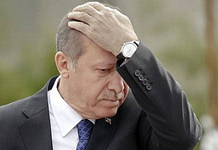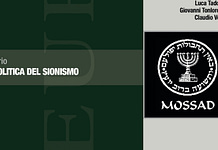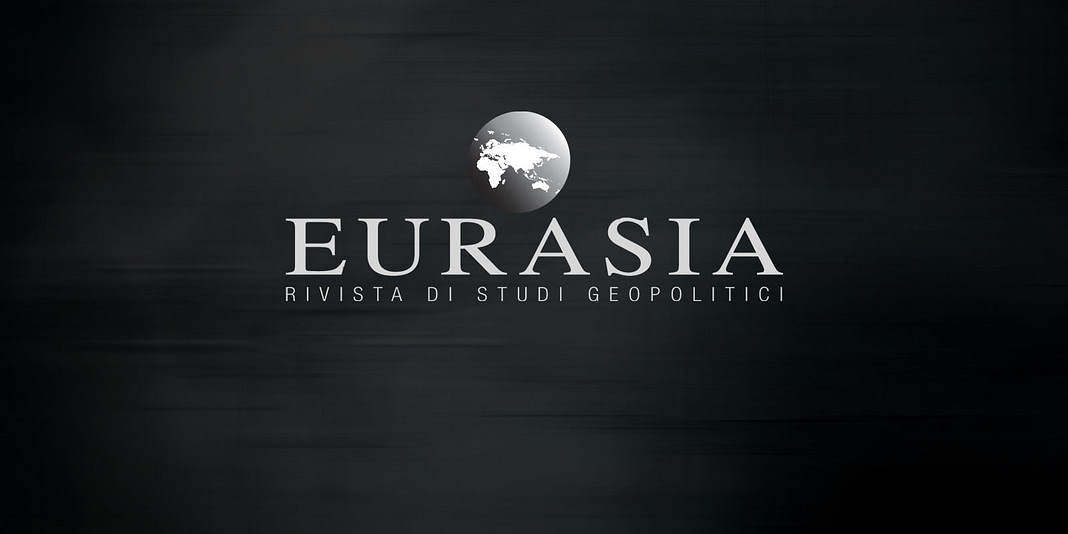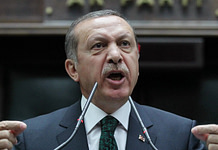The flood of cables dumped on the world by the mysterious and secretive Wikileaks founder Julian Assange is certainly one of the most bizarre events in recent intelligence history. Far from embarrassing the US State Department and foreign policy however, the cables reveal a mix of low-level boring details from US Embassy personnel around the world and what former US security adviser Zbigniew Brzezinski calls “pointed” leaks.
Among the amusing but inconsequential leaks are cables referring to Russia’s Putin and Medvedev as “Batman and Robin.” None of the documents it turns out are classified as Top Secret. Some 40% of the 250000 pages are not even classified.
Among the documents Brzezinski calls “seeded” with “pointed” facts to “favor an agenda” by an “intelligence agency,” are those relating to negotiations between Moscow and Rome’s Berlusconi government over construction of the geopolitically significant South Stream gas pipeline.
In December 2009 Russian President Dmitry Medvedev went to Rome to sign an agreement on the planned South Stream natural gas pipeline. According to the leaks, US Secretary of State Hillary Clinton ordered a full review of Rome-Moscow relations with focus on South Stream. Washington is backing another horse, a fantastically costly project called Nabucco which so far lacks sufficient suppliers of natural gas to make it viable.
In recent months the Nabucco versus South Stream battle has assumed the dimensions of the former US-Soviet energy battles in Western Europe during the Cold War Reagan era. What’s at stake is far more than financial flows from gas sales or pipeline construction. It involves the very heart of the future of Western Europe and the future of Eurasian geopolitics. On the surface that is far from obvious.
Eurasian Pipeline geopolitics
In 1991 with the dissolution of the Soviet Union and the collapse of the military alliance of the Warsaw Pact as far as Moscow was concerned, the Cold War had ended. Moscow had raised the white flag. The economy was devastated by the demands of the US-USSR arms race and by Washington State Department manipulation of Saudi oil output to collapse Soviet hard currency oil export earnings in 1986-1987. Two years later Mikhail Gorbachev agreed to let the Berlin Wall fall in what some commentators called the world’s biggest Leveraged Buyout.
The only problem is that Washington did not see any need to end their side of the Cold War. Instead of respecting verbal agreements solemnly given to Gorbachev during talks over German unification that the US would not expand NATO into former Warsaw Pact countries, Washington took advantage of Russia’s weakness during the 1990’s into the next decade to extend NATO to the very doors of Moscow. From Poland to Hungary to Romania to Bulgaria and the Baltic states NATO by 2003 was surrounding Russia at the same time IMF demands on Russia’s government to rapidly privatize state assets in its “shock therapy” program, was turning Russia’s strategic mineral and other priceless assets into Western assets.
Sometime in 2003 then President Vladimir Putin had firmly established himself and signalled to various Russian oligarchs that he intended to stabilize the Western looting of Russian assets. The clear warning shot was the October 2003 arrest of the politically ambitious Mikhail Khodorkovsky whose Yukos/Sibneftoil giant was on the verge of selling up to 40% of Russia’s largest private oil company to either ExxonMobil or Chevron in a deal brokered by George H.W. Bush and the powerful Washington Carlyle Group. Khodorkovsky had broken a pledge exacted between Putin and the Russian oligarchs that they would be allowed to keep assets literally stolen from the state under the IMF privatizations of the Yeltsin era.
The year 2003 also saw a major escalation of NATO encirclement of Russia with the US State Department-financed Rose Revolution in Georgia and the Orange Revolution in Ukraine that put two Washington marionettes in power both pledged to bring their countries into NATO. At that point Russia reacted with the only weapon still viable—its command of the world’s largest natural gas reserves and the fact that Gazprom where Medvedev had been chairman of the Board of Directors before joining Putin’s administration.
Putin negotiated a politically significant pipeline project with the outgoing regime of Germany’s Chancellor Gerhardt Schroeder called Nord Stream. Nord Stream, which recently began its first phase of delivering Russian gas to Germany and other EU markets, raised howls of protest in Washington and from the NATO government of Poland. Despite huge pressures it went ahead.
Now South Stream is being built by Russia’s Gazprom. Gas will be pumped from Russian and other gas fields by Gazprom to the Caspian area under the Black Sea, through the Balkans and into Southern and Northern Italy. Europe is the biggest buyer of Russian gas.
Even Britain plans to start piping gas directly from Russia for the first time in 2012 via the North Stream pipeline. Disputes between Russia and Ukraine, clearly encouraged when Washington’s man-in-orange, Viktor Yushchenko was still President in Ukraine, resulted in previous gas shortages in Italy, as well as elsewhere in Europe. With that in mind, Italy’s Berlusconi said: “Our goal is that the South Stream does not cross Ukrainian territory. That’s why we’ve made every effort to convince Turkey to allow the South Stream through its territorial waters.” French energy giant EDF is negotiating a 10 percent stake in the project.
In December 2009 Italy’s ENI and Gazprom signed an agreement to bring South Stream to Italy. A technical and economic assessment of the South Stream project is due in February 2011 and the pipeline will go into operation at the end of 2015. Russia has already signed agreements with Bulgaria, Serbia, Hungary, Slovenia and Croatia to implement the onshore part of the project.
A Russian-Bulgarian agreement on the South Stream gas pipeline project should be changed so that other European Union countries have access to the pipeline, European Commission energy spokesman, Marlene Holzner, said. A faction in the EU backs the Washington alternative, Nabucco. While insisting on an apparently fair opening of the South Stream project, the EU Energy Commissioner is de facto working to sabotage South Stream in favor of Nabucco. Holzner is quoted in the press stating, “European officials did not like the fact that the agreement with Russia obliged Bulgaria to provide complete and unrestricted transit of the Russian gas via its territory…Nabucco is our priority because it helps to diversify the sources of gas supply.”
The Wikileaks cables concerning relations between Berlusconi and Putin clearly fit Brzezinski’s definition of “pointed” leaks. They all but allege that Berlusconi has become a pawn of Moscow energy geopolitics. The cables speak of Berlusconi’s “extraordinarily close relationship” with Vladimir Putin, and referring to the South Stream gas pipeline project, says it was “causing intense US suspicion.”
The clear intent of the pointed leak is to cause political embarrassment to the embattled government of Berlusconi at a vulnerable time when the flamboyant Prime Minister is being inundated with personal scandals and coalition resignations.
It seems to date however that the leaks have not deterred Moscow-Rome energy cooperation. Russian President Medvedev just met with Silvio Berlusconi as part of Russian-Italian extended intergovernmental talks amid the Wikileaks release at the Russian ski resort of Krasnaya Polyana at the Black Sea coast. At the talks Russian state power trader Inter RAO and Italy’s energy group Enel signed a memorandum of partnership intent.
Today the United States is perceived not only in Moscow but in growing circles in western Europe as a superpower in terminal decline. In the context of the most severe economic depression in the USA since the 1930s with no end in sight and the failure of the Obama Presidency and US foreign policy generally to articulate an agenda of cooperation beneficial for EU governments, a growing faction within EU political and business elites from France to Italy to Germany and beyond are looking to deepen economic ties with Russia and Eurasia as the economic growth market of their future. That clearly does not bring shouts of joy in Washington. The Italy-Russia wikileaks “revelations” should be read with that geopolitical background clearly in mind.

Questo articolo è coperto da ©Copyright, per cui ne è vietata la riproduzione parziale o integrale. Per maggiori informazioni sull'informativa in relazione al diritto d'autore del sito visita Questa pagina.


